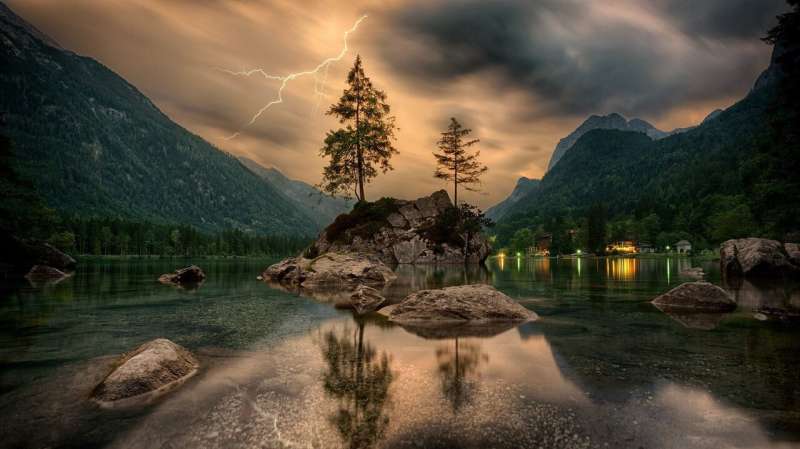Changing experiences of the natural world

Digital innovations have the potential to bring people closer to nature, to help ensure there is the necessary strong public support for conservation measures. Author Professor Les Firbank, from the University of Leeds' School of Biology and Global Food and Environment Institute, said: "Our growing digital connection to wildlife, aided by broadcasters such as David Attenborough, may be crucial to securing broad public support for the protection of wildlife, which we are currently driving to extinction at record rates.
"In future, expertise in public engagement and digital innovation are likely to be as important as expertise in conservation biology, to ensure the values and culture of a community are placed at the heart of the protection of nature.
"Urbanisation is changing our cultural relationships with wildlife, and this has to be taken into account by nature conservation organisations if conservation is to be successful into the future."
"The growing popularity of rewilding may well be a reflection of humanity's changing view of ourselves, seeing humans as separate to nature, rather than as part of it.
"We need to defend and rebuild our connections with nature to help shape a culture that recognises the need to conserve wildlife.
Examples of digital innovation taking place today include:
- Fitness apps that compare people to wild animals (such as snow leopards)
- Live feeds for nests, birds, mammals, from urban through to wild nature (including peregrine falcons at the University of Leeds)
- Gamification of simple experiments on habitat management in gardens (e.g. providing bird food)
- Virtual reality experiences of climate change and wild lands (e.g. virtual planet)
- Creating local wildlife hubs linked through social media, such as people tracking the number of birds killed by pet cats or sightings of foxes and other predators
Professor Firbank added: "Agriculture is the biggest driver of global biodiversity loss, and it has led us to the extinction crisis we face today.
"Increasing urbanization means that fewer people are experiencing nature through traditional, extensive farming, and instead they are experiencing a form of wild-nature through digital media."
More information: Les G. Firbank. The Changing Cultural Dimensions of Biodiversity Conservation, One Earth (2019). DOI: 10.1016/j.oneear.2019.10.023
Provided by University of Leeds





















